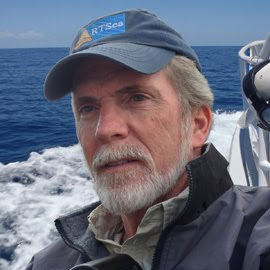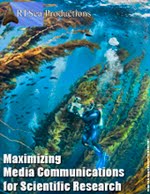 A brief news item caught my attention as it serves as a follow up to my recent post about the assessment of shark conservation at the recent BLUE Ocean Film Festival and Ocean Summit.
A brief news item caught my attention as it serves as a follow up to my recent post about the assessment of shark conservation at the recent BLUE Ocean Film Festival and Ocean Summit.Hong Kong's Ocean Park - an aquatic amusement park similar to the Sea World parks in the U.S. - is initiating preliminary research on the viability of acquiring beluga whales from Russian waters, specifically the Okhotsk Sea.
 According to Hong Kong's The Standard, the research could take anywhere from 5 to 10 years, but some conservationists are concerned that the research will be fast tracked to just a few years and that whales could be captured without fully knowing the impact on beluga whale populations in the area.
According to Hong Kong's The Standard, the research could take anywhere from 5 to 10 years, but some conservationists are concerned that the research will be fast tracked to just a few years and that whales could be captured without fully knowing the impact on beluga whale populations in the area.Naomi Rose, senior scientist with The Humane Society International, was quoted as saying, "'My guess is [Ocean Park officials] are going to acquire them from Russia, and if they sponsor this research ... it would take five years minimum, more like 10, before they would have sufficient information to determine any kind of safe removal level,' she said. 'They are not going to wait five to 10 years. They are going to do a couple of years of research and say: `Oh, we know now' and this is how many that would be safe.'"
Ocean Park is a very successful attraction in China. It includes a marine mammal park, major aquarium, and a variety of amusement park rides. In attendance, it ranks in the top 20 worldwide (15th in 2008), exceeding Hong Kong's Disneyland. It is also a member of the Association of Zoos and Aquariums (AZA), which requires members to seek animals from other institutions and acquiring wild animals only as a last resort.
Now, as I have previously said in this blog, I am not an advocate of marine mammals like whales and dolphins in captivity, particularly as these animals are pelagic. There just isn't an exhibit large enough to provide a healthy environment. But what I found interesting with the article and
 after reviewing the Ocean Park website is the growing schizophrenic position that Asian cultures are beginning to find themselves in. They can view sea creatures with awe and enthusiasm at Ocean Park - just like Western cultures - and then finish the day with a bowl of shark fin soup or whale meat. But this paradox can lead to an opportunity.
after reviewing the Ocean Park website is the growing schizophrenic position that Asian cultures are beginning to find themselves in. They can view sea creatures with awe and enthusiasm at Ocean Park - just like Western cultures - and then finish the day with a bowl of shark fin soup or whale meat. But this paradox can lead to an opportunity.As Peter Knights of WildAid commented during the recent shark conservation panel I moderated for the BLUE Ocean Film Festival, many of the Chinese people, and other Asian countries, are not fully aware of the practices of shark finning, or dolphin/whale hunting. At the moment, they have their feet in two worlds - a cultural heritage that looks at many sea creatures as merely food items to be taken as needed and by any means possible, and a more contemporary approach where a greater appreciation for the animals and the ecological implications exists. It's a paradox that provides a fracture for conservationists to utilize if done rationally and carefully.
However, it is very easy for outside groups to alienate themselves and lose the opportunity to sway Asian public opinion in favor of protection and conservation if the approach is perceived more as condemnation and ridicule rather than a rational and tempered argument. Everyone responds to enlightenment and illumination when it is not at the expense of humiliation. That is the tightrope that shark and marine mammal conservationists must walk to effectively reach the Asian populace.
Read article in The Standard.
View Ocean Park's website.

















No comments:
Post a Comment